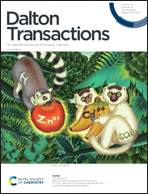Progress and prospects of dealloying methods for energy-conversion electrocatalysis†
Abstract
Developing hydrogen production and utilization technologies is a promising way to achieve large-scale applications of renewable energy. For both water electrolysis and fuel cell electrode reactions, electrocatalysts are critical to their energy conversion efficiencies. Among the various strategies for improving the performance of electrocatalysts, dealloying has been developed as a commonly used effective post-processing method. It originated from anti-corrosion science and can form metal materials with porous or “skin” nanostructures by selectively dissolving the active components in alloys. There are generally two types of dealloying methods: electrochemical dealloying and chemical dealloying. Electrochemical dealloying is more controllable, while chemical dealloying is simpler and less expensive. In this review, the fundamentals, histories, and progress of dealloying methods for energy conversion electrocatalysis are systematically summarized. Furthermore, current problems and prospects are proposed.

- This article is part of the themed collection: 2023 Frontier and Perspective articles


 Please wait while we load your content...
Please wait while we load your content...